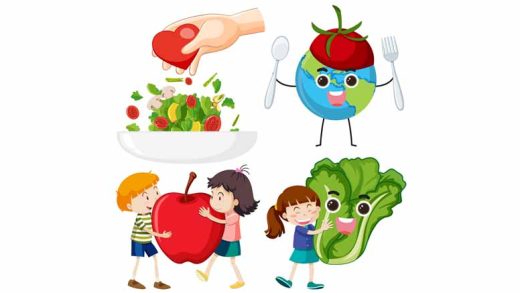Our world has been going through major environmental concerns for a very long time. It is of utmost importance for people from every generation to understand the severity of the scenario and act on it. The need for awareness of sustaining the environment starts from the youngest generation. The children must understand sustainability from a young age to shape their outlook toward our planet. This young generation is the future and their contribution towards saving the planet would leave a more prolonged impact. Let us understand what sustainability is and the importance of sustainable development.
What is sustainability?
The term sustainability refers to fulfilling present needs and requirements without depleting the natural resources for the future. Sustainable practices ensure that natural resources are used to a limit that is absolutely necessary for existence and development in the present while not compromising the resources for the future. A small step taken towards saving the planet by reducing waste, protecting natural habitats, keeping the air, water, and land clean, etc. can leave a significant impression on sustaining the environment.
Sustainable practices:
Several basic sustainable practices can hugely reverse the environmental damages made over the years. Let us look at some:
- The three Rs:
- Choose the right food:
- Travel smart:
Recycle, Reuse, and Reduce are the most common mantra we hear for sustainability. Anything that can be reused or recycled, do it, instead of throwing it away and adding to waste. Do not throw away the plastic bottles of water you bought from the store, recycle them as water storage at home for plants, use them even for planting microgreens, etc.
Choose to eat locally grown and organic vegetables and fruits instead of mass-produced and chemically enhanced vegetables. Chemical pesticides and fertilisers are not only harming your health but also the soil and land that produces your food. Instead, the usage of organic fertilisers enhances the quality and fertility of the soil while preserving the benefits of vegetables and fruits.
Imagine you and 3 of your friends travelling to the same school from nearby places in 3 different cars; It is causing three times the air pollution. Instead, if one car could be used for the commute for all three people it would cut down the air pollution caused to 1/3rd. It might seem like a small contribution but imagine 100 people doing the same thing. Taking public transport is an even better option that can take more than 20 people in one vehicle reducing the pollution to 1/20th compared to each person taking separate vehicles. Also, choose walking or cycling while travelling shorter distances, this helps with health as well as reducing pollution.
Why should sustainability facts be taught in preschool?
All of us are aware of the importance of sustainable development and awareness amongst adults. It is equally important to make the children aware of the sustainability facts, let us understand why:
- Formation of early habits:
- Spreading awareness:
- Preparing for a better future:
Children are more receptive to understanding and grasping knowledge at a young age and thus these are the perfect times to form good habits. It is thus very important to include environmental awareness and sustainable practices in the teaching program of preschool. This helps in forming a positive outlook towards preserving and healing the environment.
Including sustainability facts and environmental consciousness at an early age helps the children realise the environmental hazards and act on them. It helps them act towards positive changes to our planet and its well-being. The children are made aware that we need to take care of our home to make our future better.
Early awareness and education on sustainable practices help the children work toward a better future where they preserve the depleting natural resources for the future as well. If we protect the earth from the damage and harm made, we will succeed in making the environment more abundant and restored for the future.
Thus, teaching sustainability in preschool makes the children more responsible and mindful of their part in saving the environment. By introducing the children to early knowledge of sustainability facts we encourage them to act towards saving the planet and making it more liveable for future generations.
Building Empathy and Understanding:
Teaching sustainability facts in preschool goes beyond forming habits and spreading awareness. It plays a crucial role in building empathy and understanding towards the environment and all living beings. By integrating lessons on sustainability, children learn early on about the interdependence of humans, animals, and the environment. This fosters a sense of empathy towards living creatures and a deep understanding of the impact their actions have on the world around them.
Children who are taught to care for the planet and understand the reasons behind sustainability efforts are more likely to develop compassionate perspectives towards environmental issues. This empathy is the foundation for developing responsible citizens who are aware of their immediate surroundings and the global impact of their actions.
Encouraging Innovation and Creativity:
Incorporating sustainability into early education encourages children to think creatively and innovatively about solving environmental problems. By facing the challenges of sustainability from a young age, children are inspired to think outside the box and come up with inventive solutions to preserve natural resources. This kind of education stimulates their imagination. It also paves the way for the next generation of environmental innovators and leaders.
Here at Kangaroo Kids International Preschool, we work towards making your child aware of all things around them. We believe in teaching beyond the textbooks to provide them with a larger perspective of the world. So, call us today for admission and give your child the opportunity of holistic educational development.









